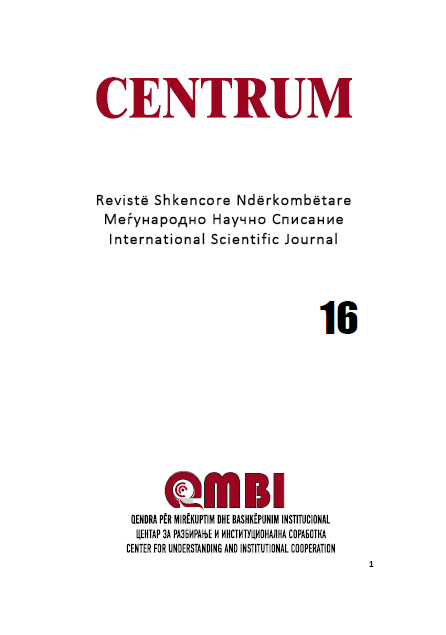ОСТВАРУВАЊЕ НА МЕЃУОПШТИНСКА СОРАБОТКА И ВОСПОСТАВЕНА ПРАКТИКА ВО РЕПУБЛИКА СЕВЕРНА МАКЕДОНИЈА
ACHIEVING INTER-MUNICIPAL COOPERATION AND ESTABLISHING PRACTICE IN THE REPUBLIC OF NORTH MACEDONIA
Author(s): Vjollca Rushaj, Valbona HajretinSubject(s): Government/Political systems
Published by: Center for Understanding and Institutional Cooperation (CUIC)
Summary/Abstract: Decentralization as a comprehensive process enables citizens to be more involved in decision-making in their communities, which those decisions progressively affect quality at the local level. Such progress enables the promotion and independence of the local self-government as a geographical, institutional and legal phenomenon. This theory is based on the LLSG from 2002, where it is provided that: “the municipalities are independent both in their work and in the regulation of the local affairs, and for the implementation of the works and functions at the local level are by way of the competencies foreseen by the local representatives”. As a rule, competencies are "inclusive" and are neither revoked nor limited, except in cases determined by law. The law also promotes the principle of subsidiarity, i.e. the right of the municipalities within their competencies to decide on performing all activities of public interest and local importance, which by the Constitution and law are not excluded from their competence and do not fall under the competence of the central power3. While the central government as a "sublimated body" is responsible for national security and interest, starting from territorial defense, foreign policy, macroeconomics and development strategy, the local government as a "framework power" is oriented towards solving local issues and problems. Of course, decentralization leads to better and higher quality resolution of issues of local interest at the local level, by bodies and institutions that are closer to the citizens, although, on the other hand, the central government has little knowledge of local resources, information and skills. Decentralization as a factor and indicator of democratization, enables the government to get closer to the people, improves transparency in revenue collection, promotes and implements inter-municipal cooperation as a way of successful practice and application in order to achieve both social and economic development. Although decentralization provides applied local management of work by areas, however, a number of internal and external factors directly affect its implementation.
Journal: CENTRUM
- Issue Year: 2021
- Issue No: 16
- Page Range: 373-385
- Page Count: 13
- Language: Macedonian

